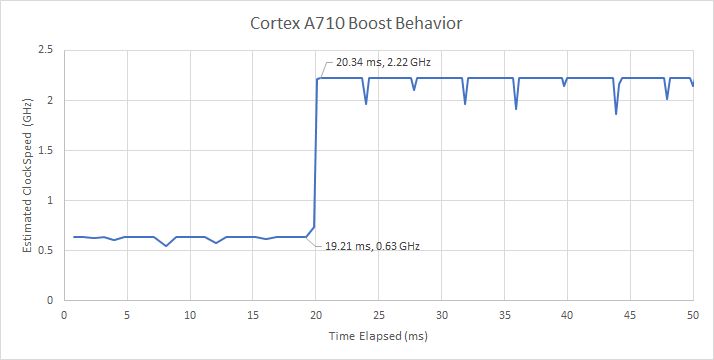Interesting, I always thought it had to do with Android’s ungodly software stack which at some point involves, of all things, fucking java.
Android doesn’t use Java at a byte-code level and never has, as far as I can tell. Source code was written in Java since mobile developers were so used to it but Android never ran the JVM, they do their own thing with Java source.
You can dislike Java syntax but the software stack on Android wasn’t Java’s.
Wait, thats is very different from what I read back in the day. I know there was a point at, I dunno, android 5 where they started doing something different with java, but my impression was that android always ran a JVM of sorts. And frankly, given how it performs even on the highest-end devices, that was really easy to believe.
I guess I need to do some research now.
No you’re correct. Android does run a JVM, just not Oracle’s. That has always been the case. Back in the day it was Dalvik, nowadays it’s ART.
There you go, that’s exactly what I was thinking. Thanks!
Pretty sure it was Dalvik virtual machine that Java was compiled to byte code for before 4.4 when they deprecated Dalvik for Android Runtime (ART), fully dropping Dalvik in 5.
@fartsparkles @Sheltac Android always ran dalvik bytecode and never Java bytecode
The change to Art was just a replacement of the “VM”, but didn’t change what byte code was run. It’s similar to how Hotspot improved the Java VM while also not fundamentally changing that it’s running Java bytecode.Thank you for the insight!
Dalvik/ART is essentially the same idea. It uses dalvik byte code, much in the same way the JVM operates.
There’s some complexity (it’s designed to do different things, and the whole Oracle lawsuits added some wrinkles) but it’s not so different as you imply.
They compile Java Bytecode to Dalvik Bytecode and run that on the Android Runtime which is a tiered JIT compiler.
It still inherits the issues of Java such as the GC, no stack allocated value types, poor cache locality, etc. Although tbf the GC on Android is pretty fucking good these days and doesn’t pause the world anymore.
Java is only used for software development, there’s nothing Java during run time.
ART?
ART what?
ART is the equivalent of a JVM. It doesn’t implement all the apis, the compiled bytecode differs, it’s optimized for mobile but that doesn’t make it not a JVM.
That’s why the NDK exists: so you can build and run C++ code natively.
Python VM is Java by your logic. If you don’t understand IT, you shouldn’t really talk on IT topics.
I can use the exact same apache jars on my Android project and my Java server.
That’s not Python. That’s very clearly java code.
The implementation of the contract is different but that’s not the same as not being Java.
You can’t use the same JARs in runtime.
Thou art wrong.
This is not true. See above.
It IS true! See the above indeed. In short - there’s no Java anything during runtime and never was.
How would you define what’s “Java” then. The language used by source code, or the compiled bytecode, or the runtime?
I don’t define anything, there are Java standards which define source code, binary code and runtime behaviour compatibility. That makes it possible to run Java apps on non-Oracle JVMs, use non-Oracle tools, etc. Android doesn’t have anything Java outside of source code. And even Java source code is not 100% compatible. It’s just not Java at all and never was. You can’t even use many open source Java libraries on Android because they are not Android compatible at the source level.
I have no experience with iOS but I do develop for the Meta Quest which runs on Android and wow is it jank. One solution for apps up to 2GB and another for up to 4GB and yet another, much more complicated solution for apps over 4GB. Is iOS like this too?
TIL that a microsecond exists and 1 millisecond is the same as 1,000 microseconds.
Wt… oh, congratulations on being one of todays lucky 10k
There isn’t exactly a lot of information being provided about the test scenario right ?
Hard to make any judgements based on that sparse amount of information.





